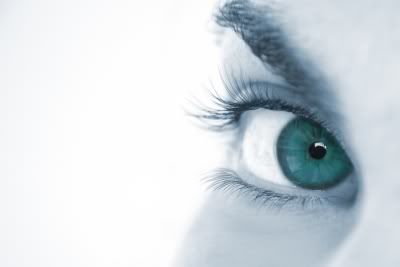Have you heard of eye stroke? Stroke in general refers to the interruption of blood and oxygen supply to the brain which causes the veins to swell and soon leads to stroke. Eye stroke on the other hand works exactly the same but only occurs in our eyes. Once you suffer from vision problems, you might be suffering from the symptoms of eye stroke.
Eye Stroke is a condition where a blockage is formed in the eye's retinal veins which creates pressure which then leads to hemorrhage of the vein or smaller capillaries. The fluid will leak into the retina which causes swelling and vision problems.
For our eyes to function well, its sensitive tissues just like the retina lines and optic nerve all needs blood for nourishment to properly perform its duties. Any interruption will lead to eye stroke.
In other words, retinal tissues without enough blood supply will most likely get damaged. Eye stroke is also referred in medical terms as Retinal Artery Occlusion. Since the eye's retina is the sensorineural layer, it is mainly responsible for vision capabilities. Once an eye stroke occurs, the vision will be highly affected which can be partial (unilateral or bilateral) or complete loss of vision.
 Causes of eye stroke comes from other underlying diseases. A heart disorder such as Embolus, can cause stroke in the eye. Embolus is caused by too much cholesterol that travels through the bloodstream that can cause vein blockage. When it hits the eyes, it can trigger retinal artery occlusion.
Causes of eye stroke comes from other underlying diseases. A heart disorder such as Embolus, can cause stroke in the eye. Embolus is caused by too much cholesterol that travels through the bloodstream that can cause vein blockage. When it hits the eyes, it can trigger retinal artery occlusion.
Another cause is atherosclerosis which is caused by fatty plaques in the artery wall. This plaques cause the arteries to narrow that sometimes worsens by embolus condition. Atherosclerosis is often associated with hypertension, hyperlipidemia and diabetes.
Another cause is the inflammation of the artery wall such as Vasculitis. Swelling of the wall may narrow the arteries and will highly increase the chances of blood clot formation. Other risk factors includes carotid artery disease, heart valve disease, IV drug use, raised intraocular pressure, hypertension, diabetes mellitus and arrhythmia.
Some of the treatment options for eye stroke includes laser surgery and steroid injections to help reduce the swelling on the retina. However, these treatments may not work for every patient. If you want to know more about this eye condition, visit your ophthalmologist today for proper diagnosis and treatment.
Eye Stroke is a condition where a blockage is formed in the eye's retinal veins which creates pressure which then leads to hemorrhage of the vein or smaller capillaries. The fluid will leak into the retina which causes swelling and vision problems.
For our eyes to function well, its sensitive tissues just like the retina lines and optic nerve all needs blood for nourishment to properly perform its duties. Any interruption will lead to eye stroke.
In other words, retinal tissues without enough blood supply will most likely get damaged. Eye stroke is also referred in medical terms as Retinal Artery Occlusion. Since the eye's retina is the sensorineural layer, it is mainly responsible for vision capabilities. Once an eye stroke occurs, the vision will be highly affected which can be partial (unilateral or bilateral) or complete loss of vision.
 Causes of eye stroke comes from other underlying diseases. A heart disorder such as Embolus, can cause stroke in the eye. Embolus is caused by too much cholesterol that travels through the bloodstream that can cause vein blockage. When it hits the eyes, it can trigger retinal artery occlusion.
Causes of eye stroke comes from other underlying diseases. A heart disorder such as Embolus, can cause stroke in the eye. Embolus is caused by too much cholesterol that travels through the bloodstream that can cause vein blockage. When it hits the eyes, it can trigger retinal artery occlusion.Another cause is atherosclerosis which is caused by fatty plaques in the artery wall. This plaques cause the arteries to narrow that sometimes worsens by embolus condition. Atherosclerosis is often associated with hypertension, hyperlipidemia and diabetes.
Another cause is the inflammation of the artery wall such as Vasculitis. Swelling of the wall may narrow the arteries and will highly increase the chances of blood clot formation. Other risk factors includes carotid artery disease, heart valve disease, IV drug use, raised intraocular pressure, hypertension, diabetes mellitus and arrhythmia.
Some of the treatment options for eye stroke includes laser surgery and steroid injections to help reduce the swelling on the retina. However, these treatments may not work for every patient. If you want to know more about this eye condition, visit your ophthalmologist today for proper diagnosis and treatment.






0 comments:
Post a Comment